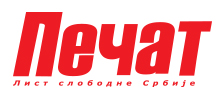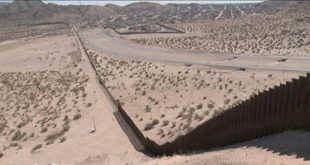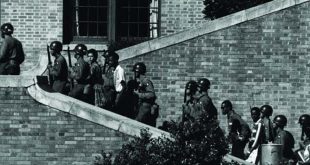Seems that some people are finally thinking rationally and addressing the issue of cyber wars square on as called for inPecat’s articles “Stop Internet Wars” [February 3, 2013] and “Stop Internet War II” [February 5, 2013].
The New York Times, America’s newspaper of record, usually the bellwether of the current administration thinking, has woken up and taken notice.
On Monday March 11, 2013 buried deep in the International Section at page 10 was a little noticed article “In Wake of Cyberattacks, China Seeks New Rules”. It reported that China had vehemently denied accusations of Chinese involvement in recent hacking attacks. As an aside it noted that China’s Foreign Minister Yang Jiechi had called for international “rules and cooperation” and that “cyberspace should not be turned into a battlefield”.
On the very next day, March 12, 2013 the Times in a front page lead story reported that the White House demanded the “Chinese government stop the widespread theft of data from computer networks and agree to ‘acceptable norms of behavior in cyberspace”.
President Obama’s national security advisor Tom Donilon in a speech at the Asia Society in New York said the White House wanted three things from Beijing: “public recognition of the urgency of the problem; a commitment to crack down on hackers in China; and an agreement to take part in a dialogue to establish global standards”
With the ink barely dry, on the same day at 10:21 a.m. the Times published on line the article “Intelligence Official Cites Threat of Cyberattacks on U.S.” which would dominate the next day’s [March 13, 2013] front page.
James R. Clapper Jr., the director of national intelligence, testifying before the US Senate Intelligence Committee said that cyberattacks posed the “most dangerous threat to the United States, more pressing than an attack by global terrorist networks.”
As specifically cited in Pecat’s earlier articles, Clapper listed [two specific attacks] the “August 2012 attack against the Saudi oil company Aramco and last year’s cyberattacks on American banks and stock exchanges, … believed by American intelligence to be the work of Iran.”
All well and good, China and the United States seem to be on the same track calling for international rules in the use of the internet, but far from the immediate moratorium on cyber war as called for by the Pecat articles.
What I fear will happen is a replay of the United Nations’ Security Council gambit. The clique of large and powerful countries that now sit and control the Security Council is going to set the cyber internet rules. The rules will apply to them only when they want to, but will apply to the rest of the world at all times.
The big players, the United States, Russia, China &tc, will effectively control the internet, monitor it, manipulate it and do as they wish, as is the case of nuclear power and arms. The rest of the world will have to abide by whatever rules they impose.
That is not what is called for and needed. There should an immediate moratorium by all sovereign states of cyber war with draconian penalties for any violation and breach. The sovereign states should then collectively attack private and criminal hacking and misuse of the internet.
 Deyan Ranko Brashich, an attorney and Op-Ed columnist, resides in and writes from New York City. His contact and blog “Contrary Views” is at www.deyanbrashich.com.
Deyan Ranko Brashich, an attorney and Op-Ed columnist, resides in and writes from New York City. His contact and blog “Contrary Views” is at www.deyanbrashich.com.
 Печат – Лист слободне Србије Политички недељник, актуелна политичка дешавања, друштво, свет, култура.
Печат – Лист слободне Србије Политички недељник, актуелна политичка дешавања, друштво, свет, култура.







